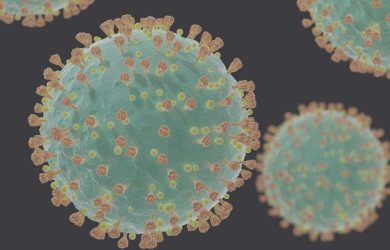Douglas Guilfoyle writes for The Gates Scholar about his research on piracy.
It took me a while to realise I was standing ninety centimetres from eleven Somali pirates.
On 12 October 2011, I was seeking shelter from the sun on a shaded balcony, slowly realising I was not going to find a seat in the main courtroom of the Supreme Court of the Seychelles. Judgment and sentence were forthcoming in the last of a series of Somali piracy cases held in the small island state. The small courtroom was already packed with government lawyers from around the globe, who were meeting in the Seychelles to discuss the international counter-piracy effort in waters off Somalia. Distracted with finding a seat, I hadn’t realised I was standing next to the suspects: eleven young Somalis just sitting calmly between two guards on the balcony outside. They weren’t in prison uniforms, just shorts and t-shirts. As an international law scholar, I hadn’t expected to come so close to my subject of study. In fact, I hadn’t anticipated working as a piracy specialist in international deliberations on piracy in Somalia.
My PhD research was on stopping and searching ships at sea. It was a broad topic covering the smuggling of drugs, migrants, and weapons of mass destruction; illegal fishing; “pirate” radio; the slave trade – and classic high-seas piracy. When I submitted in 2007, there had been an uptick in piracy activity off east Africa, but most of the scholarly attention was focussed on smash-and-grab piracy in the Strait of Malacca (essentially, the maritime equivalent of armed robbery). Then in 2008, the international community reacted against Somali piracy after French commandoes swooped onto a Somali beach to seize pirates who had held French nationals for ransom aboard the yacht Le Ponant. It wasn’t the first episode of hostage-taking for ransom off Somalia, but it triggered the first of many United Nations Security Council Resolutions. Naval deployments from various countries soon heeded the Security Council’s call to protect shipping.
As an early-career academic in 2008, I had published an article and given talks on Somali piracy. My involvement increased when the Danish Foreign Ministry asked me to assist a United Nations-backed counter-piracy effort. The Security Council had called for a cooperation mechanism to be established on Somali piracy, the cumbersomely named Contact Group on Piracy off the Coast of Somalia (CGPCS). The CGPCS is a high-level diplomatic meeting with five subsidiary working groups. As a major shipping nation, Denmark chaired Working Group 2 on legal issues (WG2). The Danish government asked me, as an independent academic, to compile a report on the treaty law instruments available in prosecuting pirates. My report on concrete legal issues was received by sixty-odd lawyers from international organisations, governments, navies, and industries affected by piracy.
Since then I have regularly attended WG2 meetings and presented on topics including jurisdiction under international law over pirates (any state can prosecute a pirate but none must), and the human rights implications of counter-piracy operations (for example, safeguards, agreements, and monitoring mechanisms may need to be established before suspects can be transferred to some partner states for trial). My research on piracy has continued and I have served as a Specialist Adviser to a House of Commons inquiry into Somali piracy.
International law alone cannot resolve an issue rooted in state failure
I had always strived to approach the international law of high-seas law enforcement as a practical topic. In speaking to government lawyers and members of navies, coast guards, and fisheries inspectorates, I’ve seen how practical legal concerns unfold in their day-to-day work (for example, fisheries inspectors can risk prosecution in foreign jurisdictions if they inspect a foreign vessel on the high seas in a manner contrary to the law of its flag state). This practical orientation has served me well in making my work interesting, and hopefully helpful and relevant, to government lawyers involved in piracy.
Seeing the eleven suspects convicted in the most recent Seychelles trial was a sobering experience. While Somali pirates at present typically hold no fewer than 200 traumatised hostages at any one time, prosecution is certainly necessary. Their offence, endangering free and safe navigation on the high seas, is one of the oldest known to international law. Nonetheless, seeing pirates sentenced to 16 years in prison in the Seychelles – a long way from their home – was difficult. International law alone cannot resolve an issue rooted in Somali state failure. While a necessary (and legally fascinating) part of the response, prosecution cannot realistically provide a complete solution. Restoring a functioning state in Somalia is, regrettably, harder than sentencing individual pirates.
*Douglas Guilfoyle (Australia, 2004) did a PhD in International Law with the support of a Gates Cambridge scholarship. This is just one of the many articles by Gates Cambridge Scholars and Alumni in the current edition of The Scholar magazine.












